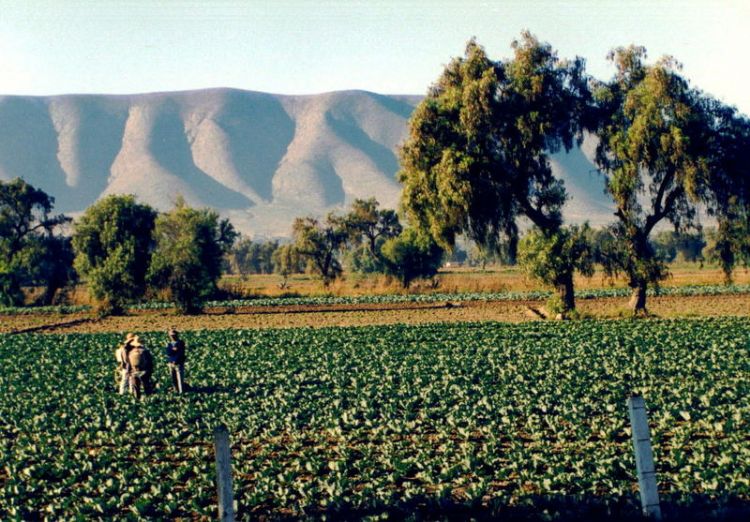Mexican Agriculture

Agriculture is still one of the most important activities for world economy; the primary nutrition of millions of persons depends on it. The climate, soilâs richness and territorial extension are determining factors for a countryâs production capacity, however, also creating a drastic influence are the productsâ demand, price competition and infrastructure created for making a profitable production.
In Mexico, despite having a great territorial extension, climate and fertile soil, there are other adverse elements that have drastically modified production capacity. Climatic factors, according to experts, are the result of a slow but visible deterioration of the environmental balance, originating storms that were formerly predictable but can no longer be anticipated with the same precision, threatening not only crops, but also natural resources and the life of populations near the risk zones.
Besides climatic changes, in the case of many countries including Mexico, the fields suffer impacts derived from economic relations, and particularly from commercial treaties. Although in this case, such agreements benefit countries by providing world markets and promoting the demand of products and services, they also harm small proprietors, because it requires an investment continuity needed for seeds, fertilizers, machinery and labor force.
At the same time, Mexican farmers face an unfair competition with producers subsided by their governments, as in the case of United States in the North American Free Trade Agreement, laws allowing incentives for field production, literarily lowering production costs, therefore Mexican producers canât compete against them.
Another influence Mexican fields have to face is choosing between products consumed by the national market, like rice, and those with a greater export demand, having impacted in the reduction of extensions available for this cereal, substituting it with crops of faster growth which can share soil with other species. Thus, many grains and oilseeds formerly produced by national agriculture currently have to be imported from other countries, like corn, bean and wheat.
Even though for the Federal Government, through the Ministry of Agriculture, Livestock, Rural Development, Fishing and Nutrition, coordinating regional, state and municipal programs, it is a priority to restructure Mexican fields. Linking other participants as research centers, universities and non-government organisms to support the development of improved products for resisting temporary crisis and plagues, as well as improving the yield per hectare, are some of the alternatives for combating this sectorâs setback.
At the same time, it requires a review of the particular sectors, each going through different problems impacting on production costs, complexity of production chains and inefficiency in competitivity, so necessary in such a stage of free trade.
Artículo Producido por el Equipo Editorial Explorando México.
Copyright Explorando México, Todos los Derechos Reservados.






